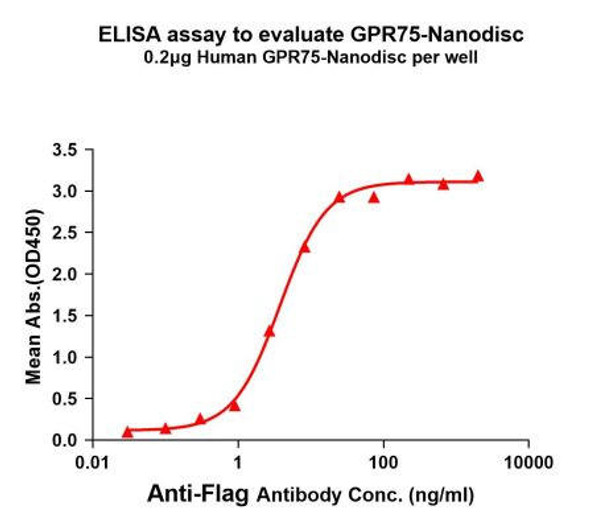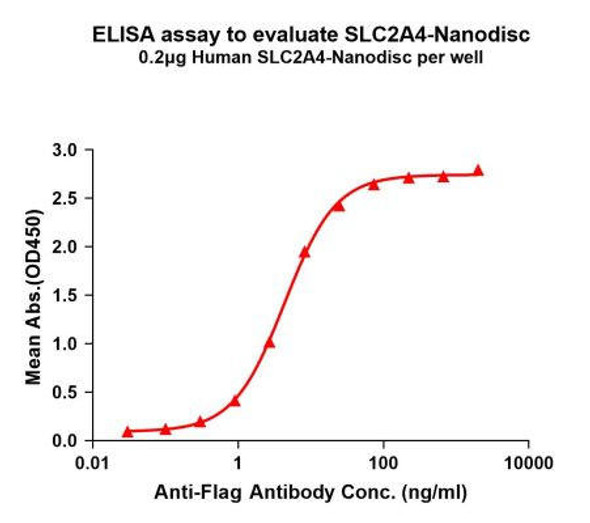Description
system_update_altDatasheet
| Product name | Human CCR7 full length protein-synthetic nanodisc |
| Size: | 10ug |
| Product SKU: | HDFP041 |
| Product Category | Full Length Transmembrane Proteins |
| Target: | CCR7 |
| Uniprot: | P32248 |
| Description: | Human CCR7 full length protein-synthetic nanodisc |
| Molecular Weight: | The human full length CCR7 protein has a MW of 42.9 kDa |
| Protein Family: | Druggable Genome, GPCR, Transmembrane |
| Protein Pathways: | Chemokine signaling pathway, Cytokine-cytokine receptor interaction |
| Storage & Shipping: | Store at -20°C to -80°C for 12 months in lyophilized form. After reconstitution, if not intended for use within a month, aliquot and store at -80°C (Avoid repeated freezing and thawing). Lyophilized proteins are shipped at ambient temperature. |
| Synonyms: | BLR2; CC-CKR-7; CCR-7; CD197; CDw197; CMKBR7; EBI1 |
| Expression System: | HEK293 |
| Formulation: | Lyophilized from nanodisc solubilization buffer (20 mM Tris-HCl, 150 mM NaCl, pH 8.0). Normally 5% - 8% trehalose is added as protectants before lyophilization. Please see Certificate of Analysis for specific instructions. |
| Background: | The protein is a member of the G protein-coupled receptor family. This receptor was identified as a gene induced by the Epstein-Barr virus (EBV), and is thought to be a mediator of EBV effects on B lymphocytes. This receptor is expressed in various lymphoid tissues and activates B and T lymphocytes. It has been shown to control the migration of memory T cells to inflamed tissues, as well as stimulate dendritic cell maturation. The chemokine (C-C motif) ligand 19 (CCL19/ECL) has been reported to be a specific ligand of this receptor. Signals mediated by this receptor regulate T cell homeostasis in lymph nodes, and may also function in the activation and polarization of T cells, and in chronic inflammation pathogenesis. |
| Delivery: | In Stock |
| Usage | Research use only |











